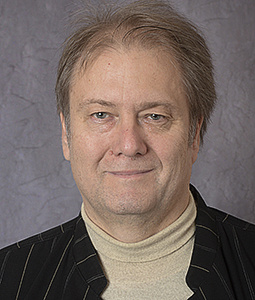Department of Philosophy
- SC.edu
- Study
- Colleges and Schools
- Arts and Sciences
- Department of Philosophy
- Our People
- Directory
- Michael Stoeltzner
Directory
Michael Stoeltzner
| Title: | Professor Chair, College Faculty Advisory Committee |
| Department: | Philosophy McCausland College of Arts and Sciences |
| Email: | stoeltzn@sc.edu |
| Office: | Close-Hipp 529 |
| Resources: | Department of Philosophy Curriculum Vitae |

Education
- Dr. Phil., Bielefeld, 2003
- M. Sc., Vienna, 1995
Research Interests
- Philosophy and History of Physics and Applied Mathematics
- Epistemology of Elementary Particle Physics
- Philosophy of Experiment
- History of Philosophy of Science
- Models and Ceteris Paribus Laws
- Patterns of Formal Teleology
Regularly Taught Courses
- Philosophy of Science
- Engineering Ethics
- Introduction to Logic
- Ethics of AI
- 20th Century Philosophy
Recent Publications
- (with Peter Mättig) “Are there Experimental Virtues?,” Philosophy of Science, forthcoming in 2025
- (with Peter Mättig) “Signatures and Phenomena”, European Journal for the Philosophy of Science (2025) 15:34.
- (with Veronika Hofer) “The Exners. A Scientific Elite, Its Ambivalent Modernism, and Their Cultural Identity”, in Shapira, Elana , ed. Austrian Identity and Modernity: Culture and Politics in the 20th Century. London: Bloomsbury Academic, 2025, pp. 29-41.
- “Narratives Divided: The German and the Austrian Mach”, in J. Preston (ed.), Interpreting Ernst Mach: Critical Essays, Cambridge University Press 2022, pp. 208-234.
- (with Philip Bechtle et al.) “Bottoms Up: The Standard Model Effective Field Theory from a Model Perspective”, Studies in History and Philosophy of Science 92 (2022) 129–143.
- “From probabilistic topologies to Feynman diagrams: Hans Reichenbach on time, genidentity, and quantum physics,” Synthese (special issue) 200, 300 (2022): 1-26
- (with Cristin Chall, Martin King and Peter Mättig) “From a Boson to the Standard Model Higgs. A Case Study in Confirmation and Model Dynamics”, Synthese 198 (2021): 3779–3811.
- “Scientific World Conception on Stage: The Prague Meeting of the German Physicists and Mathematicians”, in Radek Schuster (ed.), The Vienna Circle in Czechoslovakia (Vienna Circle Institute Yearbook), Dordrecht: Springer, 2020, pp. 73-95.
- (with Peter Mättig) “Searching for Signatures,” Philosophy of Science 87 (2020): 1246-1256.
- (with Peter Mättig) "Model choice and crucial tests. On the empirical epistemology of the Higgs discovery“, Studies in History and Philosophy of Modern Physics, 65 (2019): 73-96.
- “Hilbert’s Axiomatic Method and Carnap’s General Axiomatics”, Studies in History and Philosophy of Science 53 (2015), 12-22. 17.
- "On Optimism and Opportunism in Applied Mathematics", Erkenntnis 60 (2004), 121-145.
- "The Least Action Principle as the Logical Empiricist's Shibboleth", Studies in History and Philosophy of Modern Physics 34 (2003), 285-318.
Affiliations
- The Epistemology of the Large Hadron Collider (LHC) - An international collaboration sponsored by the German and Austrian Research Funds (2016-2023)
Projects
- My papers can be found here
- For a recent podcast interview, see the blog In Contropiede
Other
- I currently chair the Faculty Advisory Committee of the McCausland College of Arts and Sciences